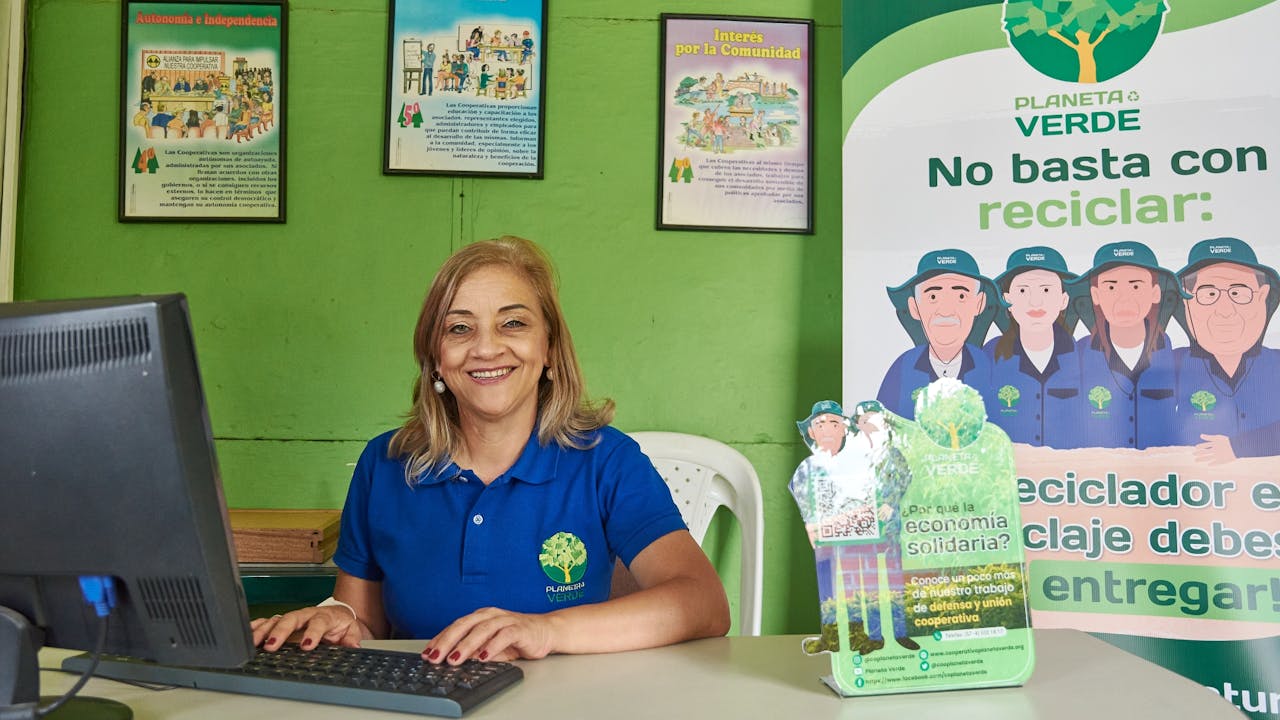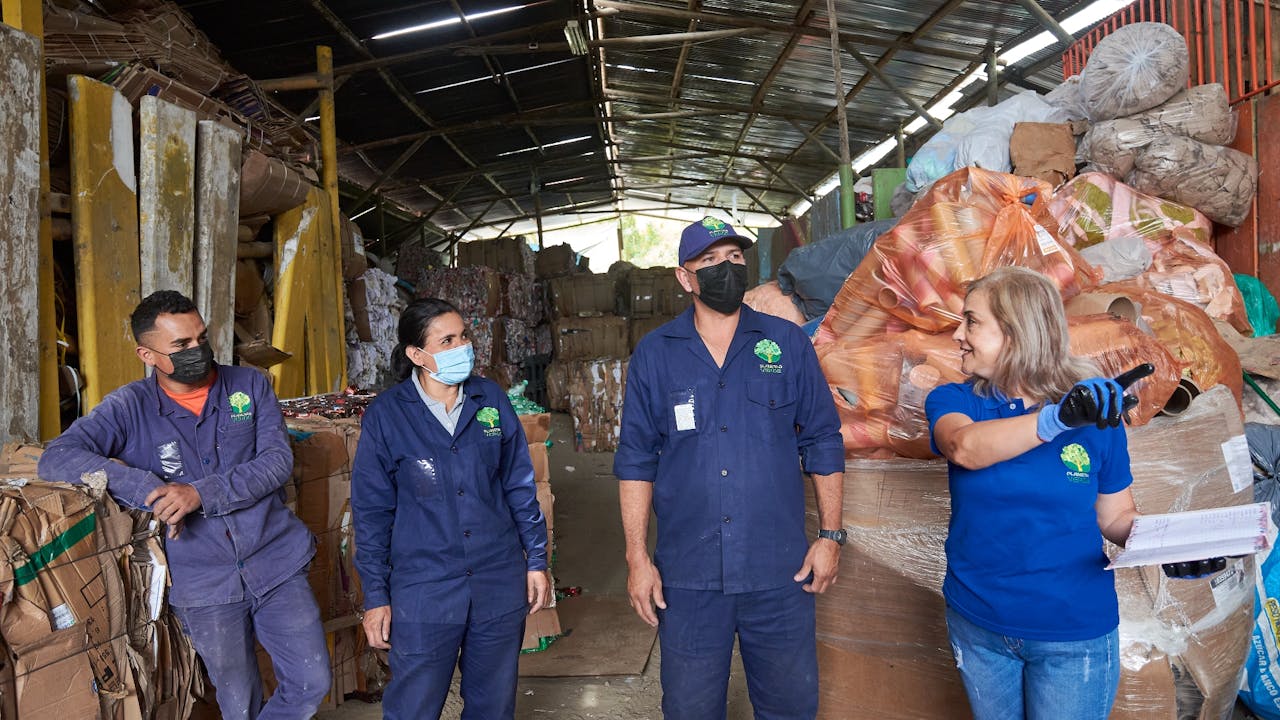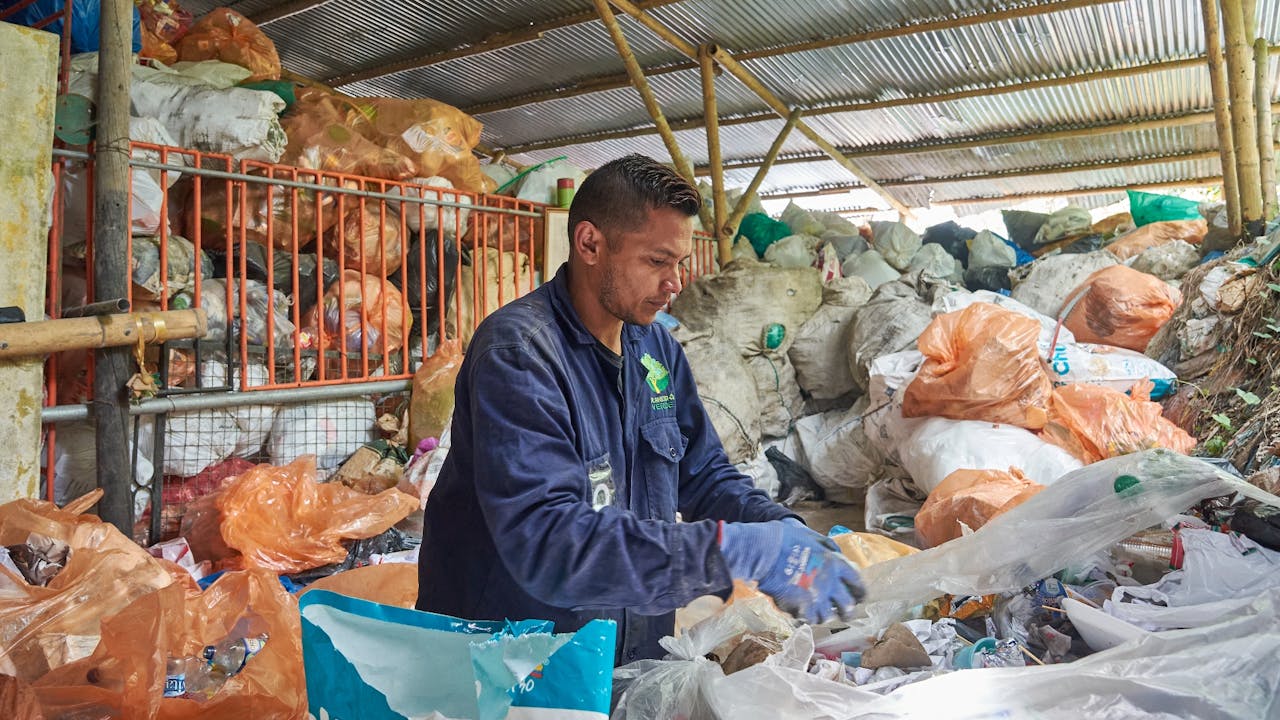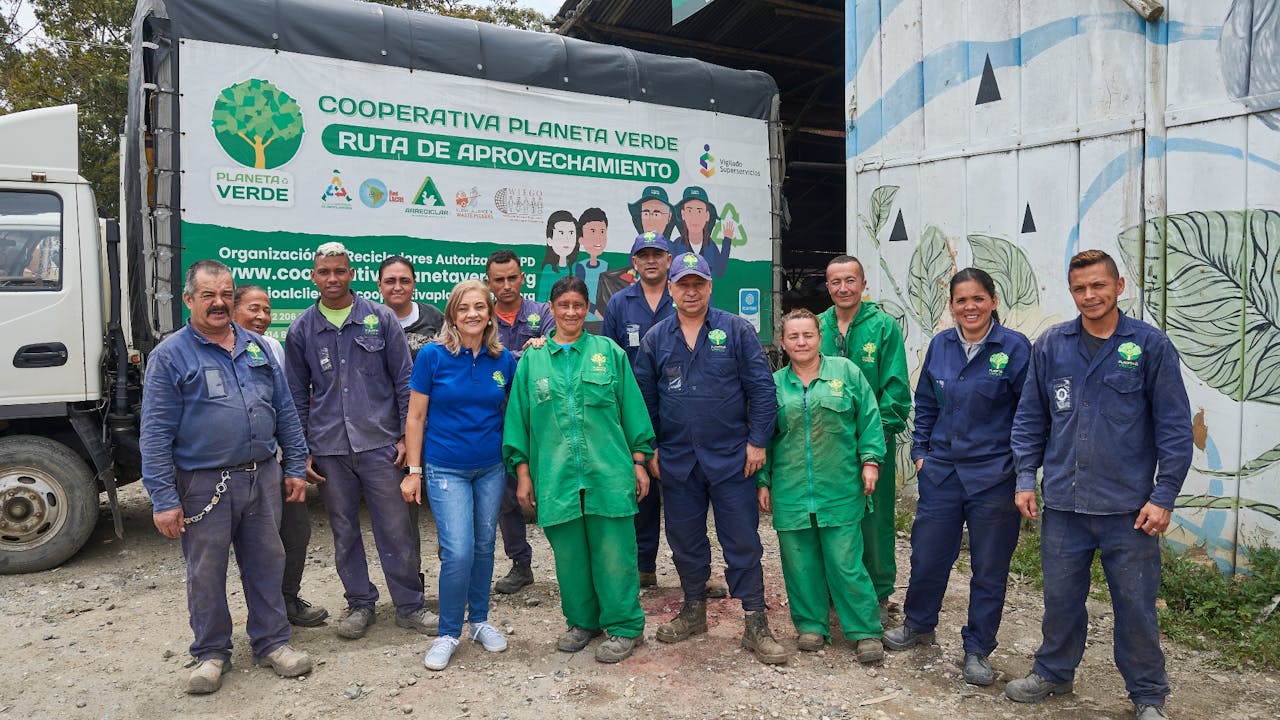In the late 1990s and early 2000s, many people in the rural areas of Colombia had to flee armed conflicts in the country. Many of them came to Rionegro in the province of Antioquia and found that there was no work for them. Collecting recyclable material from rubbish was one of the only things they could do to earn some money in the midst of the forced exodus from their territories.
At the time, I was a business administration student at the Catholic University Luis Amigo and had gone back to studying after years of being married and working in the private sector. Returning to studying was a way of turning my life around. My fellow students and I were about to graduate and our dream was to generate employment for waste recyclers by creating a cooperative. My vocation had always been in social issues and the cooperative model appealed to me. I was the eldest of the founding group. We called the cooperative Planeta Verde.

The cooperative model has always appealed to me.
© Esneyder Gutiérrez CardonaWhen we launched our cooperative it was very difficult at first, because there was a lot of scepticism on the part of the informal waste pickers. Because of their history of poverty and being uprooted, they thought that we were going to take advantage of them. Also, they had had bad experiences with other aid projects that had disappeared when the money ran out. We told them that a cooperative had nothing to do with the government, and that we were going to build it together, because cooperatives are based on partnership and solidarity. Gradually we gained their trust, and the first people who joined motivated others to do the same. Recycling is a survival trade and individualistic. Our job was to learn to think collectively. Later, we learned that our peers were joining an organization called Arreciclar, and at the national level, the Association of Waste Pickers, and we decided to join them as well. We always had the conviction that working together would help us achieve our goals.

Over the years, the members of the cooperative have learned to think and work collectively.
© Esneyder Gutiérrez CardonaToday, after 22 years, we have 94 members. Historically, waste pickers have been excluded from society. Those who worked in waste picking were associated with delinquency, informality or drug use. We are proud to say that through our cooperative work, we have managed to transform the way society looks at waste pickers. Today, the state recognises them as providers of an essential public service, through which they receive a fee that compensates them for their work.
Today the state recognises the waste pickers as providers of an essential public service.

The work of the waste pickers has made an immense contribution to the environment. The current challenge is to continue to strengthen this commitment, to ensure that they are recognised as key actors in their own development, and key players in the recycling chain. We have been achieving this through basic literacy education, based on a programme developed by a university in the region, with which we began a project specialising in educating adults. Thanks to this, most of them now have a basic education.

The work of the waste pickers has made an immense contribution to the environment.
© Esneyder Gutiérrez CardonaIn terms of my challenges as a leader, it is worth mentioning that I am now 60 years old. I look back with great pride on all that we have done, and all the obstacles we have overcome. But I confess that I am worried about the future. When we started more than two decades ago, nobody talked about recycling. Now, this activity has become a business for private, non-cooperative companies. Companies with political and financial interests have arrived and are taking everything with their big trucks. Our colleagues take to the streets, and sometimes there is nothing left. We cannot compete with them because we are not on an equal footing. It is as if we were invited to a race but we are missing a foot.
However, at the heart of our organization is the notion of solidarity. We have developed training and mediation in order to share the work - as in the case of the Venezuelan migrant population settled in Colombia. During the pandemic for instance, we shared out the bags of food that were donated to us. All of us have helped each other in the most difficult moments.

We are a close-knit team.
© Esneyder Gutiérrez CardonaWe understand that there is a legacy to take care of. We were born to dignify the work of waste pickers, to make it something more than just fine words, to be vigilant in the face of political guilds that only want to join in the corruption and to follow their personal interests. Today we are not rich but we are cooperative activists who have managed to provide for 94 families with a clear social and political commitment. That is our wealth!
Today, we are not rich but we are cooperative activists who have managed to provide for 94 families with a clear social and political commitment. That is our wealth!

